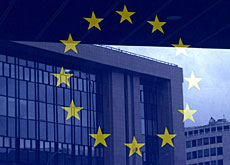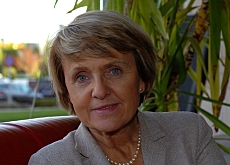Proposed EU payments fuel renewed controversy

The government wants to finance Switzerland's SFr1 billion ($0.81 billion) payments to the ten new European Union member states mainly through spending cuts in aid programmes.
The announcement prompted criticism by three of the four main political parties. They accused the government of reneging on previous pledges about the so-called Cohesion Fund.
Friday’s decision by cabinet comes amid ongoing controversy over a funding scheme and a challenge by rightwing groups against the payments.
They were agreed in the wake of an accord between Switzerland and Brussels on a second set of bilateral treaties in 2004.
President Moritz Leuenberger admitted that the government did not take fully take into account calls by parliament to leave Swiss development aid projects untouched.
According to the cabinet, some 60 per cent of the payments – SFr30 million annually over a ten-year period – will have to come from the both the foreign and the economics ministries.
Eastern Europe
The remainder will be taken from the federal coffers, but the government did not specify whether it is willing to use revenue from an accord with Brussels on the taxation of EU residents’ income in Swiss banks.
The government said development aid to the poorest countries must not be reduced to compensate for the foreign ministry’s contribution to the Cohesion Fund.
However, a programme, introduced in the 1990s to help states in eastern Europe and the former Soviet Union transform into market economies, will have to be curtailed.
The move will lead to a slight reduction in public expenditure for development aid.
Strain
The Social Democrats, as well as the centre-right Christian Democrats accused the government of wilfully ignoring a parliamentary decision.
They said the move could jeopardise the Cohesion Fund payments and put a strain on relations between Switzerland and Brussels.
Development aid organisations expressed concern about the proposed funding scheme and indicated that they might reconsider their support of the government plan.
Rightwing groups, known for their anti-European stance, have already announced they will force a nationwide vote on the Swiss contribution.
The government and parliament say the payment is Switzerland’s contribution to help reduce the economic and social disparities between the new and richer, old EU member states.
The funds are to go directly towards projects in countries mainly in eastern Europe.
swissinfo with agencies
Switzerland has been granting financial aid to countries in eastern Europe to help them transform into market economies.
As part of the second set of bilateral treaties with Brussels, non-EU member Switzerland, pledged to provide SFr1 billion to ten new EU member states mainly in eastern Europe.
Under the accord, almost half the funding will go to Poland. Hungary will benefit to the tune of SFr131 million, while the Czech Republic will receive SFr110 million.
The EU’s Cohesion Fund is a structural instrument that has helped member states reduce economic and social disparities and stabilise their economies since 1994.

In compliance with the JTI standards
More: SWI swissinfo.ch certified by the Journalism Trust Initiative



You can find an overview of ongoing debates with our journalists here. Please join us!
If you want to start a conversation about a topic raised in this article or want to report factual errors, email us at english@swissinfo.ch.